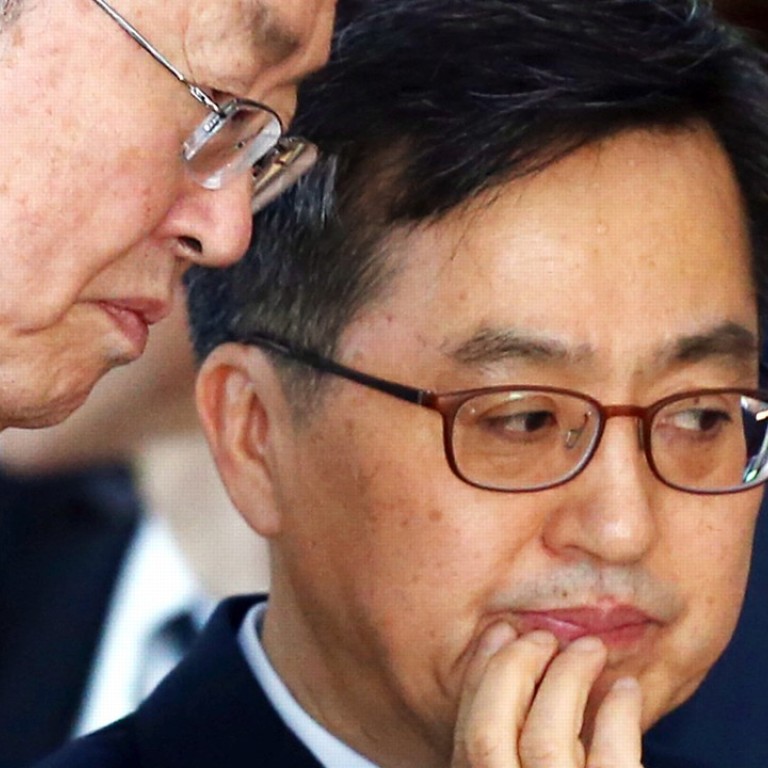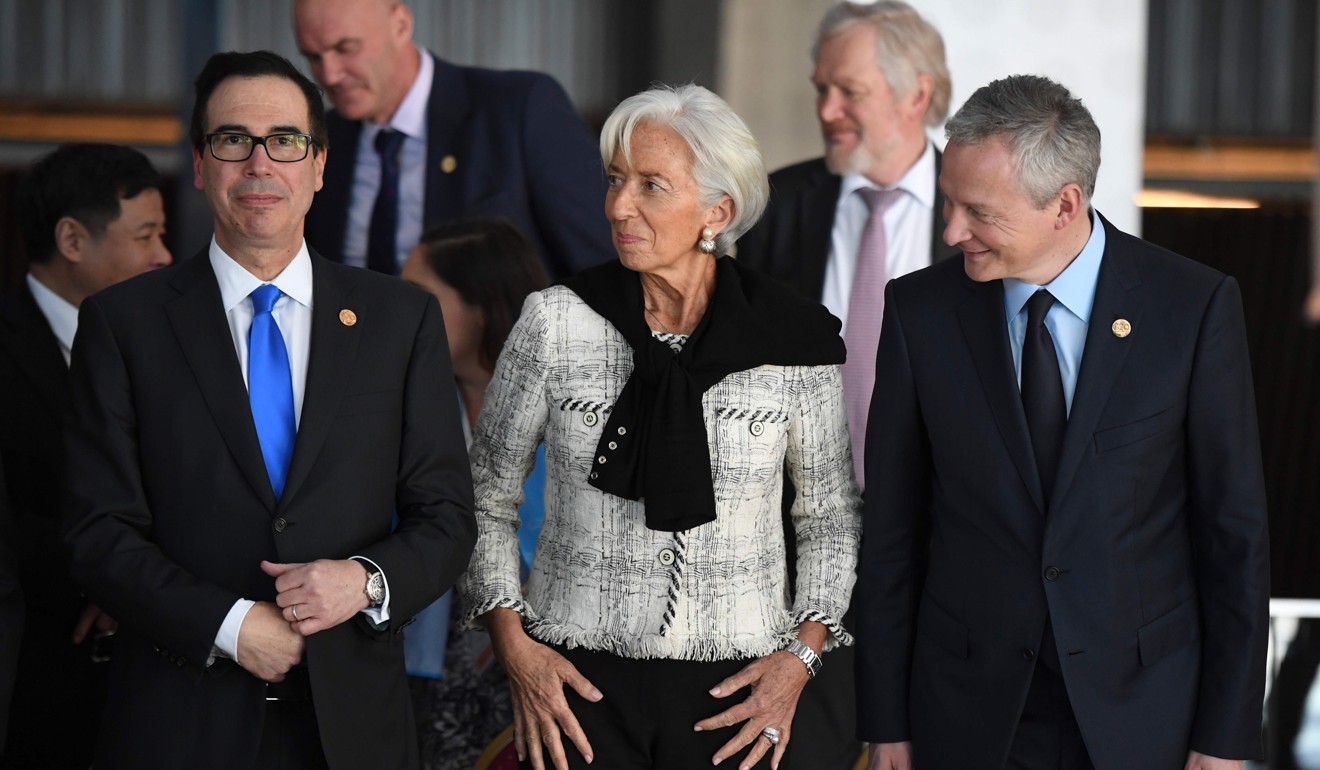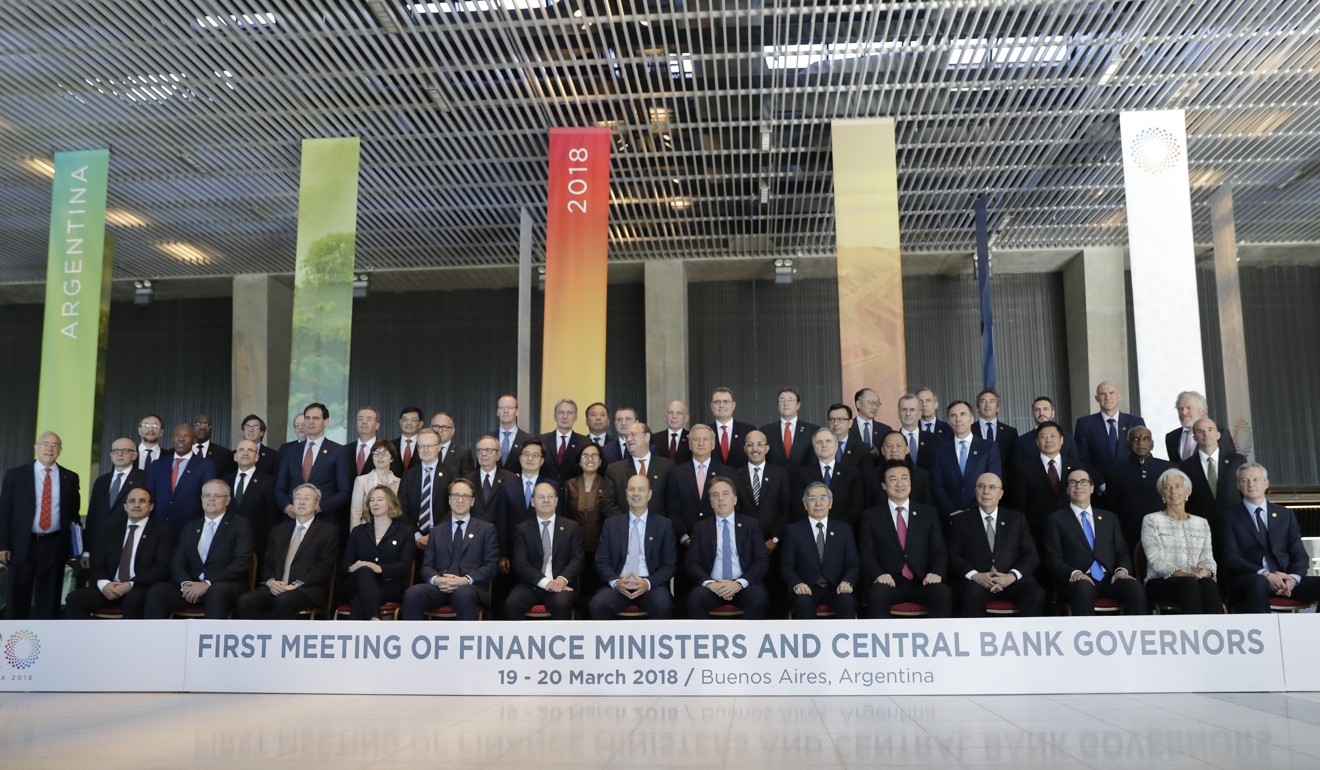
China, US flex muscles at G20 meeting as trade war looms
Tensions over trade surfaced on the first day of a G20 meeting of finance ministers on Monday as the United States and China – whose differences are fuelling fears of a trade war – flexed their muscles in the Argentine capital.
The meeting of the world’s leading economies in Buenos Aires comes days before US tariffs on steel and aluminium are due to come into force on Friday for all countries except Canada and Mexico.
The main focus of the talks is the threat of a trade war between the US and its trading partners, particularly China and the European Union.
And, as with every G20 meeting since US President Donald Trump’s arrival at the White House, the drafting of the meeting’s final statement has revealed differences between the world’s two biggest economies.

The US tariffs are essentially aimed at China, whose steel-producing overcapacity has hampered US producers for years, but Washington’s European allies have also come under fire from Trump, who has particularly targeted German trade surpluses.
Europeans have reaffirmed their unity in recent days amid a flurry of diplomatic moves to prevent steel and aluminium taxes leading to a trade war.
“Dividing Europe cannot be in the interest of the American government and it will not succeed,” German Economy Minister Peter Altmaier told German business daily Handelsblatt before heading to Washington.
But France’s minister Bruno Le Maire waded into the tariff row at the meeting, telling US Treasury Secretary Steve Mnuchin “very frankly” that the EU should be exempted from the US tariffs.
“To tell you the bottom line, no one would understand if the EU, at the end of the day, is not globally exempt from this,” he said, after meeting Mnuchin on the sidelines.
He said he told Mnuchin that the tariffs would “hurt your own allies, in this case your own European allies, impact on the jobs of your allies, on the businesses of your allies”.
Analysts said the G20 were not going to resolve differences on trade policy this week, but may be able to find some common ground.
“They may agree to work to reduce overcapacity in the steel industry,” said Capital Economics in a note after the issue was reportedly discussed in a weekend meeting between German Chancellor Angela Merkel and Chinese President Xi Jinping.
However, the EU’s consideration of a plan to tax the revenues of US tech giants Amazon, Apple Facebook and Google is further increasing tensions.
Before the Buenos Aires meeting, G20 members failed to reach agreement on a united way forward, paving the way for unilateral action in the meantime.
The European Commission in Brussels will present its own measures on Wednesday in the aftermath of the G20 meeting.
France’s EU Commissioner Pierre Moscovici sought to reassure Washington in a letter to Mnuchin.
“These proposals are neither a response to a French request nor a response against the United States,” Moscovici said.
“We have been working on these proposals for months, in close consultation with the digital companies, Europeans, the OECD and our international partners, including the Americans.”
Nevertheless, Mnuchin issued a hands-off warning on Friday. “The US firmly opposes proposals by any country to single out digital companies,” he said.
In such a tense context, the final communique will avoid once again any references to “protectionism” and replace it with a more ambiguous commitment to resist “inward looking policies”.

The issue had not been addressed officially at the two-day summit which began Monday in Buenos Aires. But some G20 officials, who spoke on condition of anonymity because they were not authorised to speak publicly, said that Trump’s measures have been a major talking point in private sessions.
Argentina’s Treasury Minister Nicolas Dujovne asked US Treasury Secretary Steven Mnuchin on Monday to exempt the South American country from the tariffs. Trump is temporarily exempting Canada and Mexico.
Other Latin American countries have also reached out to Trump for exemptions and the European Union’s top trade official said on Monday that the EU should be excluded as a whole. The EU has already published a list of American products it plans to tax if it is not exempted.
The tariffs and the EU threat to retaliate with countermeasures have escalated the risk of a trade war with tit-for-tat tariff boosts that would harm exporting nations as well as raising prices for consumers in importing nations.
The EU considers itself to be caught in the crossfire of a dispute which is actually intended to punish China for being unfair in its commercial deals.
At news conference on Monday, Dujovne and OECD Secretary General Angel Gurria presented a report, but they declined to take questions.

.png?itok=arIb17P0)